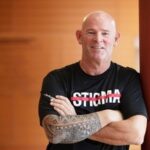Building Resilience Among First Responders
Building Resilience Among First Responders
Dates and Times
-
-In-Person
Location
-
Pacific Hall BWalt Disney World Dolphin Resort
Lake Buena Vista, FL 32830
This presentation educates the public on promoting resilience, reducing stigma, and lifting the mask on mental health among our nation’s first responders.
Before highlighting solutions to build resilience, we must first illustrate why promoting resilience is necessary for the mental health needs and survival of the first responder community. Since 2017, an average of 193 first responders per year have taken their lives (First H.E.L.P.), and “the stigmatization alone has created a boundary between the first responders and the need for mental healthcare” (AFBA, 2020). Fear of self-reporting signs of mental or emotional health concerns and reluctance to seek help, commonly perceived as signs of weakness or failure, too often results in first responder suicides.
Suicide is preventable, but preventing suicide requires participation at all levels of society. According to the CDC (2022), “Everyone can help prevent suicide by learning the warning signs, promoting prevention and resilience, and committing to social change.” This is where The Quell Foundation’s Building Resilience Among First Responders program can play a role in educating first responders, and society, to recognize mental health warning signs within their community.
This presentation will also cover trauma among first responders. Becoming resilient requires us to accept our emotions as valid. To do so we must begin to identify and understand the genesis of our emotional response to events around us. This presentation acknowledges our nation’s first responders as caretakers of the communities they serve: as individuals that put their lives on the line to protect ours with disregard for their wellbeing. Our session will educate audience members on how they can be instrumental in creating an environment that promotes mental wellness within this population of public servants. We will touch on the difference between acute, chronic, and complex trauma, and how to address each trauma to build resilience.
- • Counselors
- • Addiction Counselors
- • Social Workers
- • Licensed Marriage and Family Therapists
- • Psychologists
At the end of this course, participants will be able to:
-
1. Describe 3 contributing factors to the disproportionate number of first responders suffering with an untreated mental health condition.
-
2. Describe at least 3 ways stigma surrounding first responder mental health is a significant contributing factor to suicide within this population.
-
3. Identify 3 ways exposure to daily trauma can lead to mental health challenges including PTSD, depression and anxiety.
-
4. Describe at least 3 approaches to improving first responder mental health and their ability to help others in crisis using resiliency training and community awareness.
TPN.health has been approved by NBCC as an Approved Continuing Education Provider, ACEP No. 7267. Programs that do not qualify for NBCC credit are clearly identified. TPN.health is solely responsible for all aspects of the programs.
Course meets the qualifications for hours of continuing education credit for LPCCs as required by the California Board of Behavioral Sciences. TPN.health is approved by the California Association of Marriage and Family Therapists to sponsor continuing education for LPCCs. TPN.health maintains responsibility for this program/course and its content.
Trusted Provider Network, LLC is recognized by the New York State Education Department’s State Board for Mental Health Practitioners as an approved provider of continuing education for licensed mental health counselors. #MHC-0220.
This course has been approved by TPN.health, as a NAADAC Approved Education Provider, for educational credits. NAADAC Provider #198061, TPN.health is responsible for all aspects of the programming. Counselor Skill Group: Legal, Ethical and Professional Development.
TPN.health, #1766, is approved to offer social work continuing education by the Association of Social Work Boards (ASWB) Approved Continuing Education (ACE) program. Organizations, not individual courses, are approved as ACE providers. State and provincial regulatory boards have the final authority to determine whether an individual course may be accepted for continuing education credit. TPN.health maintains responsibility for this course. ACE provider approval period: 03/31/2022 – 03/31/2025. Social workers completing this course receive 1.5 continuing education credits.
Course meets the qualifications for hours of continuing education credit for LCSWs as required by the California Board of Behavioral Sciences. TPN.health is approved by the California Association of Marriage and Family Therapists to sponsor continuing education for LCSWs. TPN.health maintains responsibility for this program/course and its content.
Trusted Provider Network, LLC is recognized by the New York State Education Department’s State Board for Social Work as an approved provider of continuing education for licensed social workers #SW-0654.
Course meets the qualifications for hours of continuing education credit for LCSWs as required by the California Board of Behavioral Sciences. TPN.health is approved by the California Association of Marriage and Family Therapists to sponsor continuing education for LMFTs. TPN.health maintains responsibility for this program/course and its content.
Trusted Provider Network, LLC is recognized by the New York State Education Department’s State Board for Mental Health Practitioners as an approved provider of continuing education for licensed marriage and family therapists #MFT-0097.
TPN.health is approved by the American Psychological Association to sponsor continuing education for psychologists. TPN.health maintains responsibility for this program and its content.
-
Workshop Begins
-
Workshop Ends






